All About Damascus Steel
The Name
Is it the first time you’re reading the word DAMASCUS? Well, Damascus has an interesting meaning. The part “Damas” somewhat means water in Arabic. We can see that the Damascus pattern is also just like the waves of water.
The ripple effect on the blade makes Damascus knives a highlight in every kitchen they exist. Some other names for Damascus in different languages are the following.
– Wootz (Indian)
– Pulad (Persian)
– Fulad (Arabic)
– Bintie (Chinese)
From where it all started…
Damascus is famous for sure! There’s even land in Syria called Damascus, from where it all started. That’s the first place to manufacture the Damascus blades.
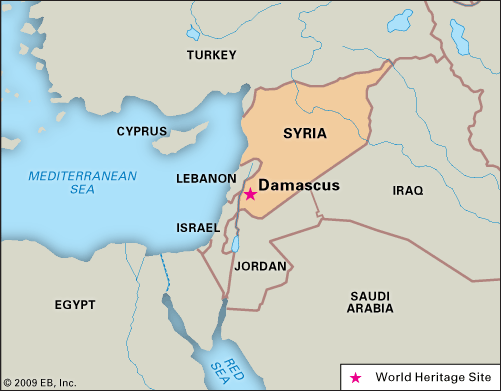
They used imported bars from Southern India of woot steel. Then the Arabs first introduced woot steel from Southern India to Damascus, where the industry thrived. Yep! You can say it was teamwork between Syrians (manufacturing), Indians (suppling). and Arabs (marketing).

Types
There are multiple manufacturing techniques for Damascus. Each Damascus artisan produces eye-catching works of art! The patterns include,
– Ladder
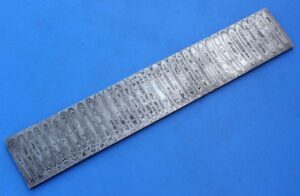
– Rose

– Pattern Welded
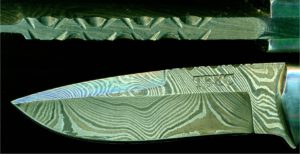
Forgetting it all
The secret of how to forge steel blades was a sacred technique. The forgers kept it a secret. However, it got lost sometime in the 18th century. Some reasons for this unfortunate turn of events are the following.
– The required raw materials are no longer available.
– Craftsmen didn’t learn the secret technique.
– Very few Damascus artisans made manufacturing expensive.
– People didn’t know the composites of original steel.

Why choose Damascus?
Damascus blades are reputed to be
– Tough
– Hardy to break
– Sharper for a long time
Damascus has amazing elements that make it quality steel. Then craftsmen melt the material at a high temperature and then layer with the hammer. This hand-forged technique creates strong layers of Damascus steel. Therefore, the layers give a watery design. Besides being beautiful, Damascus steel is of high value because it maintains a keen edge, is rigid and flexible.
Damascus is the best choice for kitchen knives. Its combination creates micro-serrations that keep the blade super sharp. Moreover, the blade stays sharp for a long time.
However, make sure you order the Damascus knife made by qualified craftsmen who acknowledge the technique and material. Both of these details are important for an excellent long-lasting knife.
Difference between Damascus and Stainless Steel
The sharpness and durability of Damascus and stainless steel don’t have much difference. However, some things do make the two sheets of steel different.
Let’s take a look at stainless steel. It’s is not just one type of material. It’s a family of different steel types that’s unaffected by rust. Heat, water, and acidic compounds can cause rust. That’s because the steel is resistant to corrosion. It contains at least 10.5% chromium.
Just like stainless steel, Damascus also doesn’t have a single steel material. Craftsmen’s use of different materials and each element helps make it a quality product and durable. They layer and forge multiple layers of steel to produce Damascus steel. It creates a remarkable swirling pattern.
– Carbon for extra strength, sharpness, and edge retention.
– Nickel gives a silver color and enhances corrosion resistance
– Manganese for the structure of the grain.
– Chromium improves tensile strength and hardness.
Another difference between Damascus and stainless steel is the appearance. Damascus steel has swirl and wavy patterns. Stainless steel has a plain shiny surface.
Damascus Steel
- High Carbon
- Wavy Pattern
- Extra-hardness
Stainless Steel
- Chromium
- Plain Surface
- Rust-free
Damascus has the most unique features. It’s, for sure, an amazing technique that has a great history.

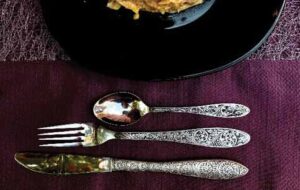
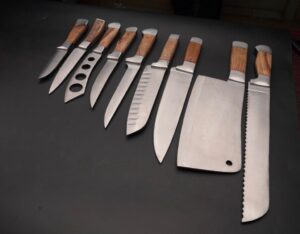
No comment yet, add your voice below!